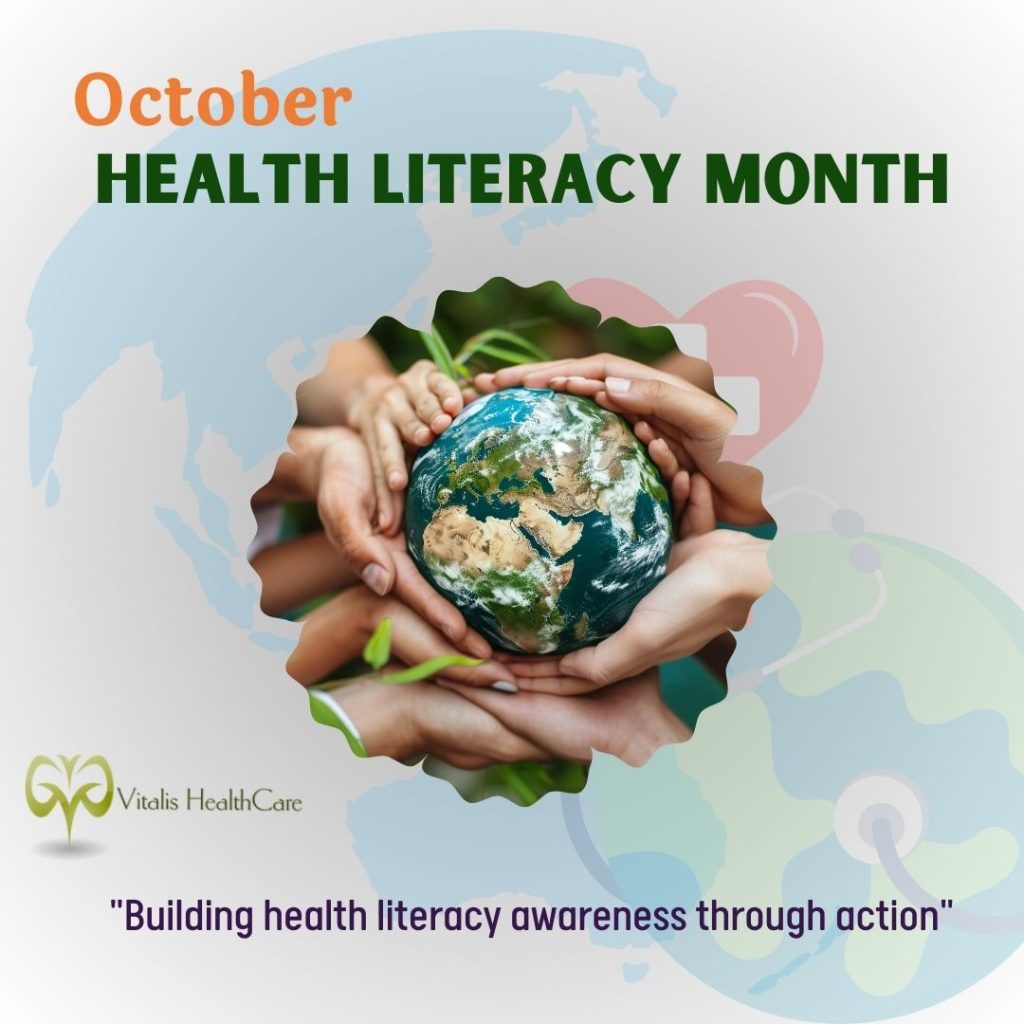The month of October marks health literacy month. It is celebrated through the advocacy and promotion of constant and accurate health education to the citizens of the country. With the theme “building health literacy awareness through action” health literacy priorities raising awareness on the benefits of a properly health educated community.
Health literacy goes beyond the ability to read medical information. It includes the ability to find, understand and use health services and information.
According to the World Health Organization, “health literacy refers broadly to the ability of individuals to gain access to, understand and use information in ways which promote and maintain good health for themselves, their families and their communities”
Health Literacy and Chronic Conditions
Health literacy has also proven to be pivotal towards the prevention and treatment of chronic diseases. It has been associated with reduction in risk behaviors for chronic disease and an overall better health outcome. Unfortunately, a large portion of the population struggles with low health literacy, which can lead to misinterpretations of health information, improper medication use, and poor disease management. This makes the fight against chronic diseases even more challenging.
Nearly 70% of deaths in the United States are attributed to chronic diseases such as cardiovascular diseases, cancer, respiratory diseases and diabetes. These conditions can often be prevented through lifestyle modifications, early detection, and proper management. However, a lack of awareness and understanding about risk factors, preventive measures, and treatment options hinders the effective control of chronic diseases. For example, many people may not fully understand the importance of controlling blood pressure, maintaining healthy cholesterol levels, or managing blood sugar, all of which are crucial in preventing chronic conditions.
How Health Literacy Contributes to the Prevention of Chronic Conditions
Health literacy significantly contributes to the Prevention and or management of chronic conditions. This occurs in the following ways;
- Promoting Healthy Lifestyle Choices: A person with strong health literacy is more likely to understand the Importance of regular physical activity, balanced nutrition, smoking cessation, and moderate alcohol consumption in preventing chronic diseases. For instance, reading nutrition labels and understanding the impact of high sodium intake can help individuals make better food choices, thus lowering their risk of hypertension.
- Encouraging Early Detection and Screening: People with higher levels of health literacy are more likely to participate in regular screenings, such as blood pressure checks, cholesterol testing, and cancer screenings. Early detection is key to preventing the progression of many chronic diseases. Understanding when and why these screenings are necessary enables individuals to identify potential issues before they become serious.
- Improving Medication Compliance: Low health literacy is often linked to poor medication compliance. Patients may not fully understand the importance of taking medications as prescribed, or they may misinterpret the instructions. Health-literate individuals can better understand how and when to take their medications, the potential side effects, and the consequences of non-compliance. This is especially critical in managing conditions like diabetes and hypertension, where medication management is often a foundation of treatment.
- Reducing Healthcare Costs: By promoting prevention and early intervention, health literacy can significantly reduce the financial burden associated with chronic diseases. Preventive healthcare is often far less expensive than treating advanced stages of chronic illness. Individuals who understand the importance of regular check-ups and healthy habits are less likely to need costly emergency care or hospitalizations.
- Enabling Informed Decision-Making: When faced with a diagnosis, individuals with higher health literacy are better equipped to evaluate their options. They can understand the risks and benefits of different treatments, ask their healthcare providers informed questions, and participate in shared decision-making. This can lead to more personalized and effective healthcare, as well as higher satisfaction with the healthcare experience.
Investing in health literacy efforts not only benefits individuals but also reduces the burden on healthcare systems, ultimately contributing to healthier societies. Whether through improved education, healthcare communication, or public health initiatives, increasing health literacy is a vital step toward preventing and managing chronic diseases.
At Vitalis Healthcare, we are committed to educating individuals about healthcare with the aim of improving health literacy and contributing to a healthier society. Whether through educational and engaging blogs on various health topics or professional health advice and assistance from our team of registered nurses, compassionate healthcare is at the core of what we do.
To learn more about our services and how best we can help you, kindly book a free consultation to get in touch with our client care coordinator.
Phone Number: 240.716.6874
Email: info@vitalishealthcare.com
Location: We provide our services in every county in the State of Maryland, United States of America.
Office Address: 8757 Georgia Avenue Suite 440 Silver Spring, MD 20910


